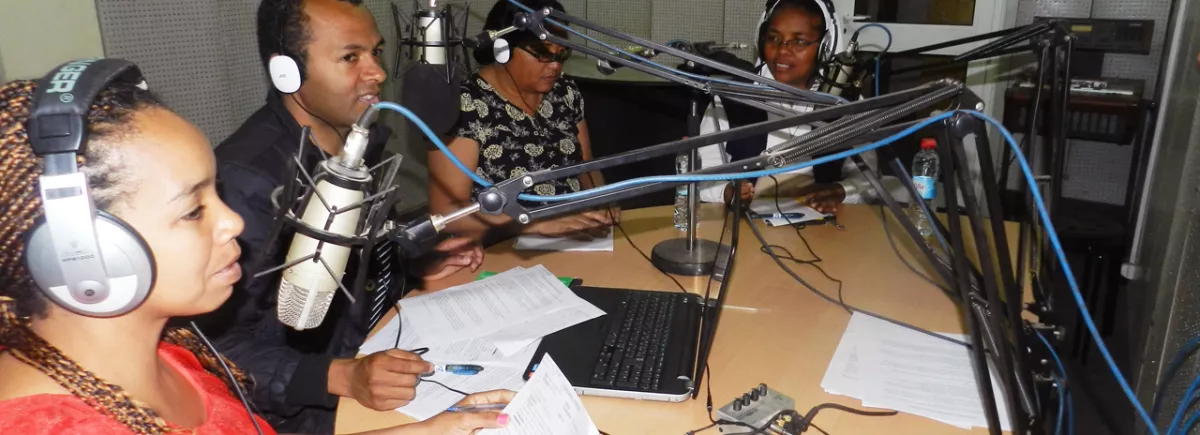
Civic dialogue on Madagascar’s radio stations
Related project
Madagascan Citizens’ DialoguesThe radio stations benefiting from the Citizens Dialogue project have taken part in a training workshop on designing civic dialogue programmes. The workshop was held in Antananarivo on 10-22 October 2016.
Over the two-week course, ten journalists and presenters worked actively on producing radio programmes on issues linked to the provision of basic social services in Antananarivo. Under the guidance of two journalist trainers,
Emmanuel de Solère Stintzy and Jean-Hervé Rakotozanany, they were introduced to the design of interactive popular discussion programmes involving NGOs and local authorities.
The trainers focused on the technical skills needed to create this type of programming, dealing with questions such as:
- What is interactivity on the radio?
- How do you prepare for and host a debate?
- How do you select a topic and choose your guests?
- How do you manage the discussion and respond to listeners' reactions?
The journalists then went on location in poorer districts of Antananarivo. Here they made pilot programmes on a range of topics including schooling and education, health, living conditions, jobs and access to basic social services, all of which are fundamental concerns in people's daily lives.
As Sylvana Rizy (RNA Antalaha) points out:
« After we broadcast the programmes we made during the training course, quite a lot of people contacted the station with offers of collaboration. In particular, a senior doctor asked us to tackle health-related issues and a prison warder asked if the station would allow prisoners to speak out. »
Discussions were also enlivened by the participation of non-governmental organisations such as the CDA (Centre de Développement d'Andohatapenaka), rehabilitation and healthcare access organisations such as Akamasoa and Énergie (Nouveau Relais des Jeunes) and local fokontany chiefs.
The project will continue to raise journalists' awareness of civic dialogue on the radio at a second training course, which is due to be held from 28 November to 15 December.
This project is being run in partnership with:




